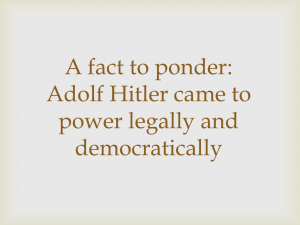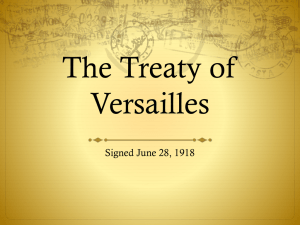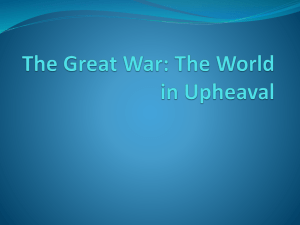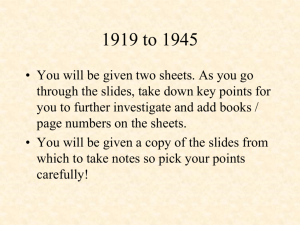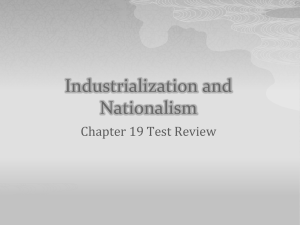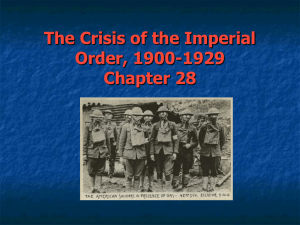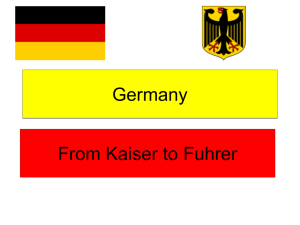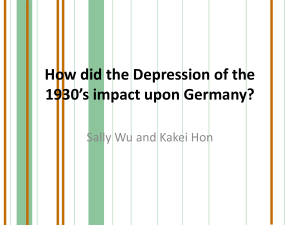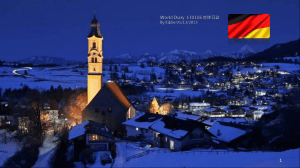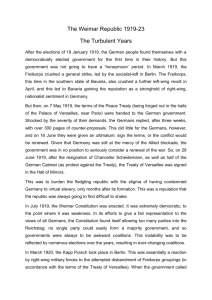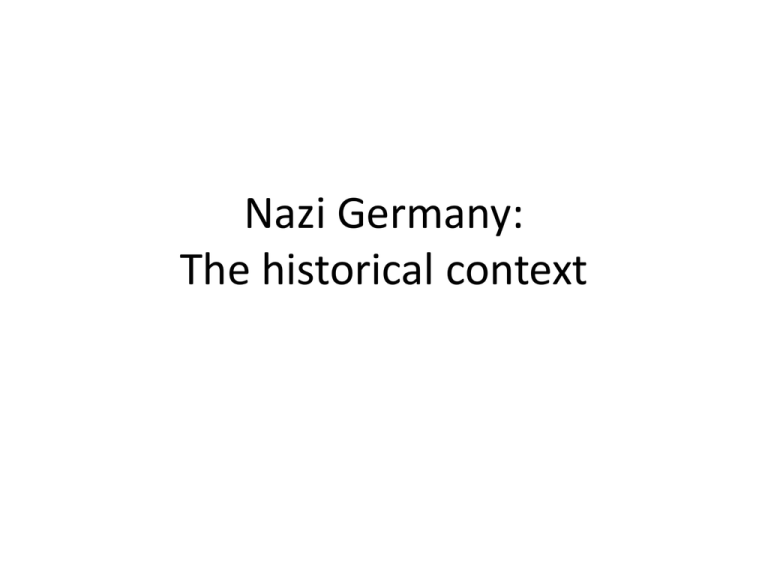
Nazi Germany:
The historical context
Preliminary points
• German history not ‘pre-Nazi’
• German history not ‘peculiar’
• Fascism and anti-Semitism European
phenomena
• Nazism not a ‘breakdown in the works’
• Is Nazism a ‘past that will not pass away’?
[die Vergangenheit, die nicht vergeht]
Key dates in modern German History
•
•
•
•
•
•
•
1648: Peace of Westphalia ends 30 years war
1789: French Revolution
1806: Battle of Jena – defeat of Prussia.
Dissolution of Holy Roman Empire
1815 defeat of Napoleon
1848 Nationalist revolutions (failed?)
1871 Establishment of German Empire
Blackbourn and Eley, The Peculiarities
of German History
German Empire 1871
Revolution
•
•
•
•
•
•
•
•
1917: Reichstag Peace resolution
Russian Revolution
Fatherland Party
January 1918 Mass strikes
November 1918: Defeat and revolution
Sailors’ soldiers and workers ‘councils’
Stab in the back myth
Räterepublik or parliamentary democracy?
Occupation of Berlin newspaper
quarter- Lindenstraße
Counter-revolution
•
•
•
•
•
•
•
Post-war crisis, 1918-1923
Crushing of Spartakus uprisising by Freikorps
Murder of Rosa Luxenburg, Karl Liebknecht
Suppression of Munich Räterepublik
Kapp putsch, March 1919
Hitler Putsch, November 1923
Partial justice: Emil Julius Gumbel, Four years
of political murder (1922)
George Grosz: Hunger,
Hilfe der Kunstler
Edmonde Guy with AEG
Vampyr
Social Democratic Party (SPD) 1919
Independent Social Democrats (USPD)
1920
Communists (KPD) 1919
Liberals (DDP) 1929
Catholics (Zentrum) 1932
Conservatives (DVP) 1920
Nationalists (DNVP) 1919
Nazis (NSDAP) 1929
Reichstag elections 1920
Reichstag Election July 1932
Nazi vote / Catholic population
Politics
•
•
•
•
•
•
•
Fewer political parties than the Empire
Proportional representation not problematic
Clause 48 used well by Friedrich Ebert
Democracy comes to an end in 1930
Nazis peaked in July 1932: Hitler not elected
Who were the Nazis?
Was there a ‘national revolution’ in 1933?

